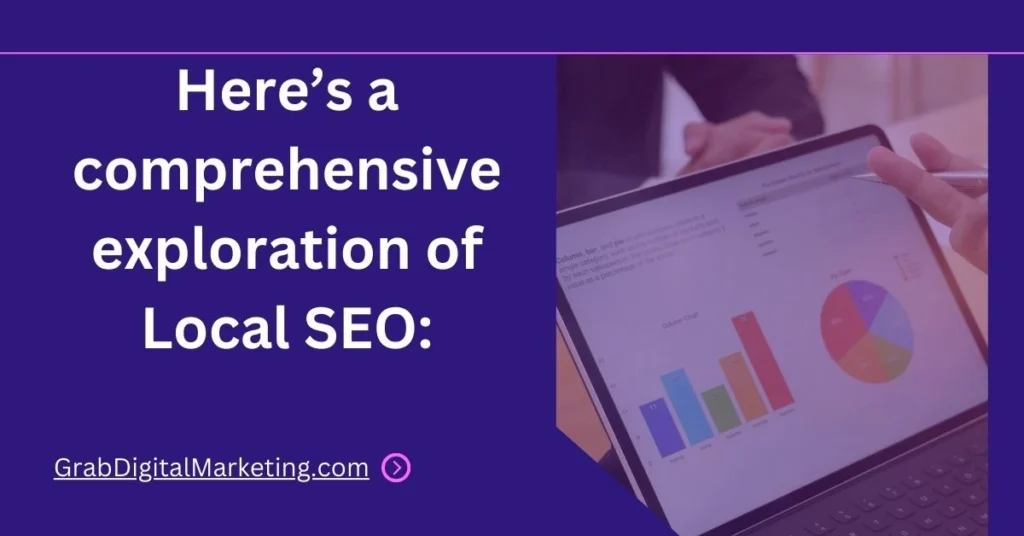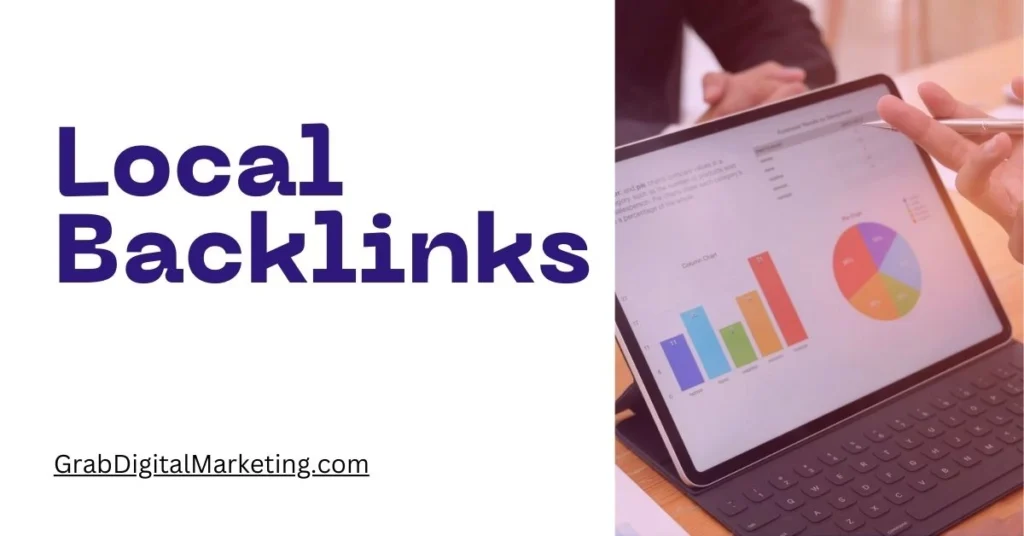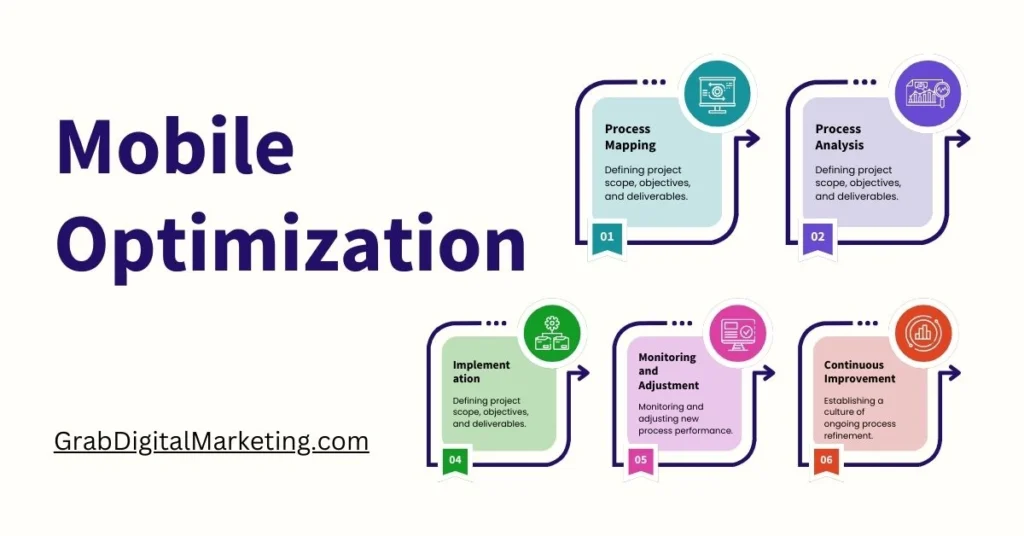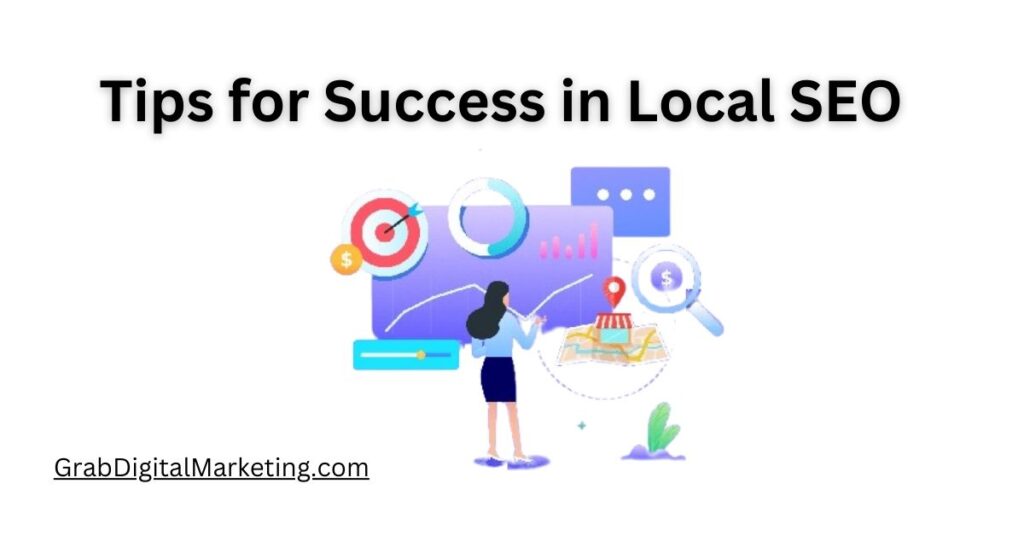Local SEO (Search Engine Optimization) is a powerful marketing strategy that optimizes a business’s online presence to attract more local customers from relevant local searches. These searches typically occur on search engines like Google, Bing, or Yahoo, often including location-specific keywords like “near me” or the name of a city. By improving visibility in local search results, businesses can increase foot traffic, online traffic, and conversions.
Here’s a comprehensive exploration of Local SEO:

Understanding Local SEO
Local SEO helps businesses connect with potential customers who are looking for specific products or services within their geographical area. This is particularly important for brick-and-mortar businesses like restaurants, salons, retail stores, medical offices, and service providers such as plumbers or electricians.
The goal of Local SEO is to ensure that when someone searches for terms like “coffee shop near me,” your business appears prominently in the search engine results page (SERP), especially in the local pack or map results.
Key Components of Local SEO

Google Business Profile Optimization (Formerly Google My Business)
- Claim and verify your Google Business Profile.
- Provide accurate and up-to-date business information such as name, address, phone number, hours of operation, website, and categories.
- Add high-quality photos and respond to customer reviews to improve engagement.
Local Citations

- Ensure your business is listed accurately on local directories like Yelp, Yellow Pages, and Bing Places.
- Consistency of Name, Address, and Phone Number (NAP) across all platforms is crucial for building trust with search engines.
Online Reviews

- Positive reviews on Google, Yelp, and other platforms can boost your credibility and improve rankings.
- Actively request reviews from satisfied customers and respond to all feedback professionally.
On-Page Optimization

- Use location-specific keywords in page titles, meta descriptions, headers, and content.
- Create localized content, such as blog posts about local events or services tailored to local needs.
- Ensure your website is mobile-friendly and loads quickly, as many local searches are performed on mobile devices.
Local Backlinks

- Gain backlinks from reputable local websites, such as local news outlets, bloggers, or community organizations.
- Participate in local events or sponsorships to build relationships and earn links.
Localized Content

- Write about topics that resonate with your local audience, such as guides to your city or neighborhood events.
- Include keywords like your city’s name, landmarks, or specific areas.
Schema Markup

- Implement local business schema markup (structured data) on your website to provide search engines with detailed information about your business.
Mobile Optimization

- Ensure your website is optimized for mobile devices, as a significant percentage of local searches come from smartphones.
The Importance of Local SEO

Local SEO is critical for small and medium-sized businesses that rely on attracting customers from a specific area. Here are some reasons why it matters:
- Increased Visibility: Local SEO boosts your presence in local search results and maps, ensuring more potential customers find you.
- Higher Conversion Rates: Local searches often have high intent, as users are actively looking for products or services near them, leading to better conversion rates.
- Community Engagement: Optimizing for local SEO helps you engage with your local community and build trust with local customers.
- Competitive Advantage: Many businesses overlook Local SEO, so implementing it effectively can give you a competitive edge.
Challenges in Local SEO

While Local SEO offers significant benefits, it also comes with challenges, including:
- Maintaining Consistency: Keeping NAP information consistent across multiple platforms can be time-consuming.
- Managing Reviews: Negative reviews can impact your reputation, and managing them requires a strategic approach.
- Algorithm Changes: Search engine algorithms evolve frequently, so staying updated is essential for maintaining rankings.
Tips for Success in Local SEO

- Perform a local SEO audit to identify strengths and weaknesses.
- Use tools like Google Analytics and Google Search Console to track performance and traffic.
- Focus on voice search optimization, as many users search using voice commands.
- Leverage social media to engage with your local audience and share content.




